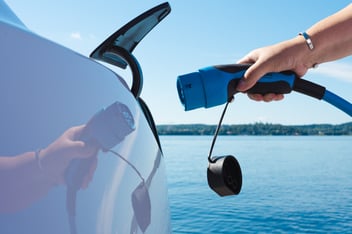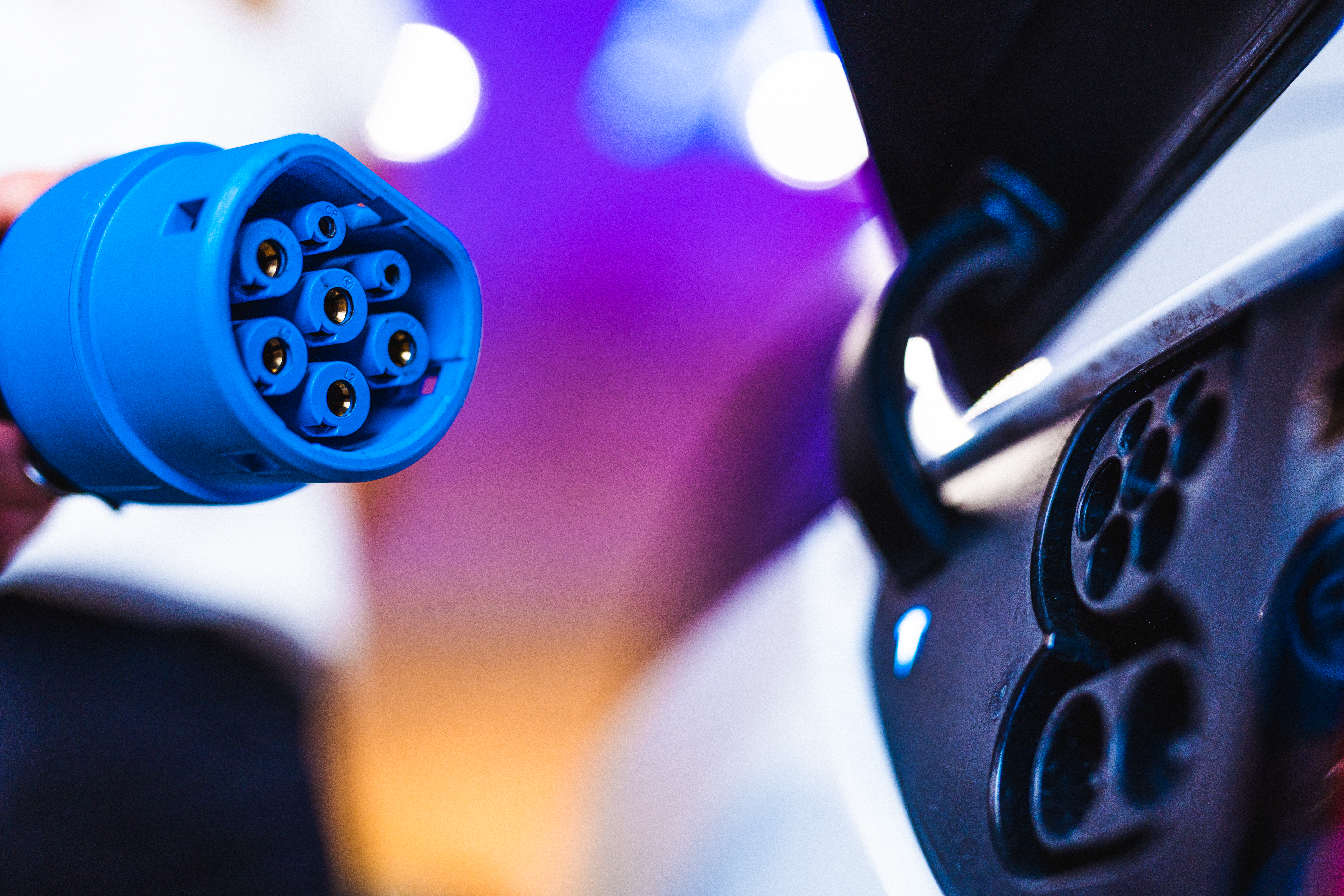
Industry Leaders EVA Global and United Call Centers (UCC) Collaborate to Support Electric Mobility Ecosystem Amid EVA Global’s Bankruptcy
November, 2024 /
 We recently had a chance to sit down with EVA Global's Principal Charging Systems Architect, Robert De Leeuw, where we asked five questions on today's rapidly changing EV charging infrastructure landscape. Originally from Breda, Netherlands, Robert's passions include windsurfing, cycling, and a love for following technology news and trends.
We recently had a chance to sit down with EVA Global's Principal Charging Systems Architect, Robert De Leeuw, where we asked five questions on today's rapidly changing EV charging infrastructure landscape. Originally from Breda, Netherlands, Robert's passions include windsurfing, cycling, and a love for following technology news and trends.
Our conversation focused on evolving charging infrastructure and the technologies of today’s EV charging units, what this means for customers in terms of safety and the charging experience and how EVA Assures can help. Here were some of his inside thoughts in the discussion:
For me, reliability means carefree traveling for EV drivers, in a word: freedom. For example, EV drivers should not have to worry about charging, nor should they be thinking about it. When I start a charging session on a charging station I have never used, I'm still crossing my fingers from time to time. Due to previous experiences, I know it is not always working. On the technical side, I know all the protocols involved. In my head, I see the communications involved being sent to the CPO (Charge Point Operator). Even for me, it is sometimes unclear why I cannot charge at a charging station. I should be able to give my EV to my 75-year-old mother, and she should be able to charge anywhere - every time.
Security is an essential aspect of EV charging. Charging stations can consume vast amounts of energy from the grid. The energy grid needs to be balanced between production and consumption. Turning off a lot of chargers simultaneously could cause an imbalance in the grid, which could cause blackouts. Security is even more critical for EVA working with so many CPOs. We are constantly aware of our industry position and try to lead by example: have best-in-class security awareness, technology, and processes in place.
Our employees handle privacy-sensitive information daily. They talk to drivers, and when needed, they have access to address information, invoices, payment status, etc. We make sure they can only access the information they need. If they access GDPR-related information, we make sure none of it is stored or cashed on any system that does not need to have a copy of that information. We keep audit trails of anything that happens with GDPR-related information.
This can be frustrating for many EV drivers, including myself. It is incredibly disappointing when an app shows the charger is available, but it is out-of-order when you arrive at the charger. Drivers need to be able to rely on the information that is provided to them. At EVA, we feel and hear the pain and frustration of the drivers. As a driver, there are two options: find another charger or call the charging station number. If the driver calls us, we will never let a driver become stranded. We will do our best to get a charging session started. We have access to all the tools needed to help the driver: remote connectivity to the charging station, a vast knowledge base, and the experience of our EV Customer Service Specialists. The best tool we have is EVA Assures. We can monitor the infrastructure of our customers. Ultimately, we strive to solve issues before a driver notices them.
By monitoring chargers, Charge Point Operators (CPOs) can solve issues when the charger reports them. EVA provides monitoring via EVA Assures, where we can monitor EV chargers for our customers and have our team of technicians solve the issues remotely as much as possible.
While older hardware will require more care, eventually, all installed infrastructure will need maintenance. However, every visit of a technician is expensive. When our team cannot solve the problem remotely, we will notify a technician that needs to go on-site to fix a broken charger, however, this is still reactive. As an operator, you do not want to rely on reactive maintenance only: EV drivers will notice chargers are out-of-order. This will be at the expense of the reputation of the operator.
To prevent components from failing, operators can rely on preventive maintenance. For example, replacing components on a time or routine-based interval. However, this can result in more on-site visits than needed. Further optimization can be done through predictive maintenance: techniques, which help determine the condition of in-service equipment to estimate when maintenance should be performed. To do predictive maintenance, you will need to either learn the optimal maintenance interval or measure parameters and signals that can be used to predict when some part starts failing. Every CPO will need to learn this, either independently on their own or via their suppliers. This approach promises cost savings over routine or time-based preventive maintenance because tasks are performed only when warranted.
As EVA monitors chargers for multiple CPOs, we watch more chargers, understand network issues and typical bug issues, and become better at predicting when maintenance is needed. In addition, EVA will be able to gather experience with all the installed hardware of all our customers, giving us a more comprehensive overview of the most common and repeated problems.
EVA has started projects to gather experience with machine learning and pattern recognition. In the first phases of these projects, we are building a system that can predict when the software in a charger starts to become unreliable. We know that sending a 'reset' in many cases solves most of the issues.
The old motto from the IT Crowd is still relevant: "Did you try turning it off and on again?" With these projects, we are starting to automate the reset of chargers. As we do today, we will notify our customers when we reset a charger, even when a machine does this.
With the knowledge and experience we have from machine learning projects, we will begin focusing and understanding the nature of failing hardware, with the ultimate goal of predicting when a hardware component is expected to fail and proactively be ready for this.
There are many ways EVA Global help our partners manage their electric vehicle charger infrastructure and provide a superior customer experience to EV drivers. Contact EVA Global today to learn more how we can help you.

November, 2024 /


July, 2024 / News
